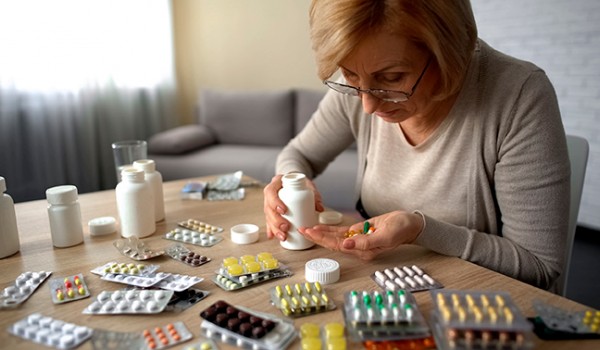
Self-medication and its dangers
17.09.2020The practice of a person using medicines on their own initiative without a prescription or medical or pharmaceutical advice, self-medication, is very common and can be very harmful if you do not have enough knowledge.
There are medicines which can be dispensed without a prescription, without the need for medical intervention, known in the Anglo-Saxon world as OTC or over-the-counter medicines to treat diseases considered minor, as a form of self-care, with a positive impact on reducing spending within health systems.
In our country, resolution no. 000024 of August 18, 2016, which puts into effect the regulations governing over-the-counter medicines, establishes that in the marketing of over-the-counter medicines without a prescription, access to truthful information must be guaranteed to users and patients, regarding the criteria for the rational use of medicines. Therefore, the use of these medicines must be done with the correct knowledge and orientation of these medicines.
It is important to advocate for responsible self-medication with the sole objective of treating symptoms considered minor such as fever, for a limited time, as long as there is previous knowledge of the mild symptoms towards which the medicines are directed. It is opposed to the self-prescription, or indiscriminate use of drugs without indication or medical supervision, by indication of a relative or acquaintance without adequate knowledge of the medicines.
The main pharmacological groups related to this practice are analgesics, anti-inflammatories, anti-flu medications and medications that act on the gastrointestinal tract. However, there is also evidence of the use of drugs that require specific medical prescription and even controlled drugs.
In view of the current sanitary situation, an increase of self-medication has been observed in order to treat or prevent Covid-19, as is the case of Hydroxychloroquine and Ivermectin. In fact, cases of death and intoxication due to the use of Chloroquine that are not intended for human consumption have been reported. However, the WHO does not recommend self-medication with any drugs, including antibiotics, to prevent or cure VIDOC-19. Treatment with these drugs should be evaluated and monitored by health professionals.
Treatment with these medications should be evaluated and monitored by health care professionals. Inappropriate or indiscriminate use of medications may result in side effects or potentially dangerous problems such as the following:
- Development of resistance to an antibiotic. It is very common practice to use antibiotics even in cases of viral etiology not susceptible to antibiotics or not completing the proper duration of the drug, this excessive and unnecessary use of an antibiotic leads to mutation of bacteria in response to these drugs, thus developing resistance, which makes it necessary to use a broader spectrum of antibiotics. This is a problem that is affecting public health worldwide.
- Interaction with other drugs, a drug can increase or decrease the effect of another drug, so especially patients with treatments in chronic diseases, should be careful when using other drugs.
- Hiding health problems, which leads to delays in seeking medical help, which could aggravate health problems.
- Dependence and tolerance to medicines, the indiscriminate use of a medicine, can cause our organism to get used to it and not produce the same effect as before, as in the case of painkillers.
- Intoxication, the use of non-recommended doses of medication due to ignorance and incorrect duration of treatment, leads to adverse effects on our bodies.
Recommendations
- It is necessary to make an important effort in the formation of the population, as far as the management of its health.
- Before taking any medication, it is important to consult a doctor.
- We should not self-medicate despite presenting symptoms similar to a certain illness, advice from a third party, or having consumed a medication previously.
- Never take a medication prescribed for another person and never give your own medication to others.
- The pharmacists guide people who go to the pharmacies with the aim of consuming medicines not prescribed by medical staff.
